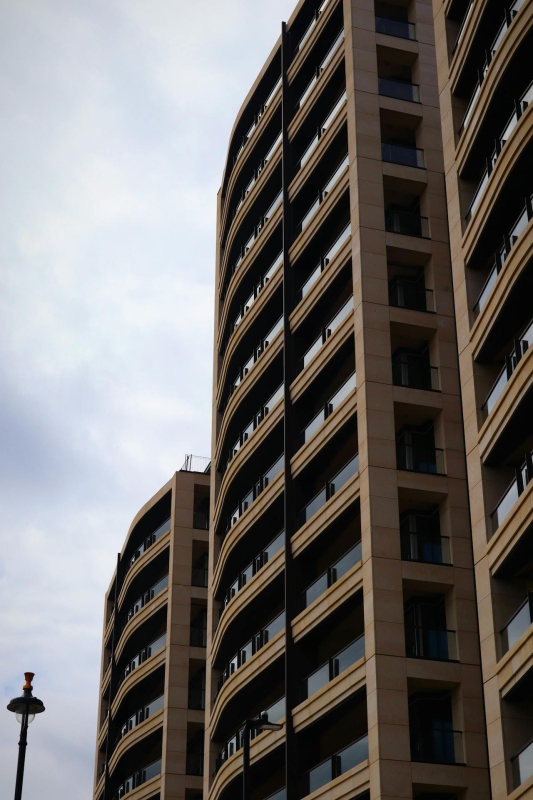The Court of Appeal has confirmed that the leaseholder protections in the Building Safety Act 2022 (BSA 2022) apply to building safety-related costs incurred even before the relevant provisions came into force on 28 June 2022. Leaseholders who had already paid associated service charges before that date are not entitled to automatic reimbursement, but they may be able to seek repayment by applying for a discretionary Remediation Contribution Order.
We look below at the two sequential judgments in Adriatic Land 5 Ltd v The Long Leaseholders at Hippersley Point [2025] and Stratford Village Developments Partnership (1) and Get Living Plc (2) v Triathlon Homes LLP (1) and East Village Management Ltd (2) [2025].
WolfBite – the key takeaways
· The BSA 2022 contains provisions that protect leaseholders from the costs of fixing historic building safety defects and enabling such costs to be passed on to those ultimately responsible.· These “leaseholder protections” came into force on 28 June 2022.
· The extent to which the leaseholder protections apply to costs incurred before 28 June 2022 is of considerable importance to landlords and leaseholders.
· In Hippersley Point, the Court of Appeal confirmed that qualifying leaseholders are not liable to pay landlords’ building safety remediation costs whether those costs were incurred before or after 28 June 2022, but service charges for such costs that had already been paid by that date are unaffected.
· In Triathlon, the Court of Appeal held that, where leaseholders had already paid relevant building safety costs before 28 June 2022, they may still be able to seek reimbursement by applying for a Remediation Contribution Order.
· These overlapping judgments will be directly relevant to other similarly worded provisions that make up the leaseholder protections.
· The decisions clarify the position for leaseholders who had or had not paid relevant service charges before 28 June 2022, emphasise the purposive approach the higher courts are taking to the BSA 2022 and highlight that orders may still be made against those responsible for building safety defects even where public grants are initially funding remediation works.
What was the retrospectivity issue in Hippersley Point?
This case concerned a 10-storey block of flats in Abbey Wood, London.In 2020, defects in the external construction of the block were discovered that gave rise to a fire risk, requiring substantial remedial works.
The long leases of the flats contained service charge provisions that, on the face of it, enabled the landlord to recover the cost of the works from the leaseholders.
However, statutory regulations require landlords to carry out a consultation with leaseholders before carrying out major works. These regulations mean that landlords will be barred from recovering more than £250 per flat through the service charge unless they comply with the consultation requirements or they obtain an order from the tribunal dispensing with the need to comply.
The landlord in this case applied for dispensation from having to comply with consultation requirements in connection with the proposed major works to the external façade of the building, and interim fire safety measures.
The landlord started its dispensation application before the BSA 2022 came into force.
The First-tier Tribunal (FTT) granted dispensation but imposed a condition that the landlord should not be entitled to recover its costs of the dispensation application from the leaseholders.
The landlord appealed.
By the time the appeal was decided, most of the leaseholder protections in the BSA 2022 had come into force. The relevant provisions came into force on 28 June 2022.
The particular provision concerned here was paragraph 9 of Schedule 8, which provides that:
“No service charge is payable under a qualifying lease in respect of legal or professional services relating to the liability (or potential liability) of any person incurred as a result of a relevant [building safety] defect”.
In this case, the landlord’s dispensation application had started, and the costs relating to the application were incurred, before paragraph 9 came into force on 28 June 2022.
The question, therefore, was whether the landlord’s costs of the dispensation application were in any event covered by paragraph 9.
The landlord argued that paragraph 9 should not be read as having retrospective effect, and that the costs of the dispensation application did not fall within the types of costs covered by paragraph 9 anyway.
The Upper Tribunal disagreed on both counts and dismissed the landlord’s appeal.
The landlord appealed again, this time to the Court of Appeal.
The Court of Appeal had to decide whether the costs of the dispensation application came within the scope of paragraph 9, and to what extent paragraph 9 applies to costs incurred before it came into force.
On the scope issue, the Court of Appeal agreed with the Upper Tribunal below, that the landlord’s costs of the dispensation application did come within paragraph 9. The legal and other professional services the landlord had obtained for the purposes of the dispensation application, and therefore the associated costs, “related to” the liability or potential liability the landlord had incurred as a result of a relevant defect. In addition, given that the purpose of the leaseholder protections afforded by the BSA 2022 was to relieve tenants (especially qualifying leaseholders) from liability to pay service charges arising from “relevant defects”, it would be odd if a tenant could nevertheless be required to pay the landlord’s costs of a dispensation application that related to works necessary to address those very defects.
On the retrospectivity issue, the Court of Appeal decided, by a majority of two to one, that paragraph 9 did apply to costs incurred before 28 June 2022, subject to one important caveat. The Court of Appeal considered that the correct interpretation was that, from 28 June 2022, no service charge of the relevant type was payable whether the underlying costs had been incurred, or a service charge had been demanded or had fallen due before or after that date. However, this interpretation does not affect payments that leaseholders might have already made before 28 June 2022.
Accordingly, a line is drawn in the sand on 28 June 2022.
On and from 28 June 2022, no service charge of the relevant type is payable whether the underlying costs had already been incurred, or service charges had been demanded or fallen due.
Any service charges paid before that date are, though, unaffected by paragraph 9.
Schedule 8 to the BSA 2022 puts in place very substantial protections for leaseholders, preventing them from liability to pay service charges that would otherwise be due under the contractual scheme.
The Court of Appeal considered that the effect of bringing the protections in Schedule 8 into force on 28 June 2022 was bound to cause unfairness to affected landlords, and was bound to introduce some arbitrary distinctions, for example between landlords who had already billed leaseholders and those who had not and between those leaseholders who had already paid service charge demands and those who had not.
Parliament had, however, needed to draw the line somewhere.
The Court of Appeal considered that its interpretation was more consistent with the scheme of the remediation provisions of the BSA 2022, which was to provide a raft of protections for leaseholders. The purpose of this was to ensure that costs are met by those responsible for the defects rather than anyone else, and to provide relief for leaseholders facing unprecedentedly large and often unaffordable service charges.
Triathlon
Section 124 of the BSA 2022 allows an interested person (including a leaseholder of a flat or of the whole building) to apply to the FTT for an order requiring a current or former landlord or developer, or someone associated with them, to meet costs incurred or to be incurred in remedying relevant defects in medium and high-rise buildings. The tribunal may make such a Remediation Contribution Order if it considers it "just and equitable" to do so.In December 2022, the long leaseholder in this case applied for a Remediation Contribution Order to recoup money that it had paid in service charges in respect of interim fire safety measures and investigative and preparatory works relating to five blocks of flats in the former Olympic Village in East London, and requiring the landlord to repay several million pounds that the management company had paid in remedying defects.
One of the key issues was the extent to which the right to a Remediation Contribution Order in section 124 applies to costs incurred before 28 June 2022.
As with paragraph 9 of Schedule 8, section 124 of the BSA 2022 does not expressly say that it is intended to apply to costs incurred prior to the date it came into force.
The FTT considered that section 124 allows Remediation Contribution Orders to be made in respect of costs incurred before 28 June 2022, and that it was just and equitable for such an order to be made including in respect of those historic costs.
The landlord appealed, and the matter was transferred directly to the Court of Appeal to hear immediately after Hippersley Point.
The Court of Appeal agreed with the FTT that a Remediation Contribution Order can be made in respect of costs incurred before section 124 of the BSA 2022 came into force on 28 June 2022, and there were no grounds to disturb the FTT’s decision that it was just and equitable to make such an order in this case.
So far as retrospectivity was concerned, the Court of Appeal considered that it was necessary to interpret section 124 so as to give effect to the purposes of Part 5 of the BSA 2022. These purposes include the protection of leaseholders from financial risk, and to ensure that risks from historic defects are remedied without the leaseholders having to bear the potentially very large costs.
One of the statutory mechanisms to give effect to this purpose is the protection for leaseholders in Schedule 8, but, as it had just decided in Hippersley Point, this only provides protection from being required to pay; it does not enable payments that have already been made to be recovered.
However, the Court of Appeal found it difficult to believe that Parliament could have intended that those leaseholders who had not paid should receive this protection but that those leaseholders who had paid should be left without any remedy at all, except the prospect of suing developers and contractors in what would no doubt be long, complex and expensive proceedings.
It was therefore far more consistent with the purposes of the BSA 2022 to interpret section 124 as providing the statutory mechanism for leaseholders who had already paid relevant service charges to seek to pass on the costs they had already incurred – whether before or after the BSA 2022 came into force.
Why are the decisions in Hippersley Point & Triathlon important?
Subject to any further appeal to the Supreme Court, we now have clarity on the position of leaseholders who had paid building safety-related service charges before 28 June 2022. Hippersley Point says that the retrospective effect of the leaseholder protections in Schedule 8 does not extend so far as to entitle those leaseholders to automatic reimbursement or credit, but Triathlon says that those leaseholders might still be able to seek repayment through an application for a Remediation Contribution Order. Whether the tribunal considers it just and equitable to make such an order will turn on the facts and circumstances of each case.The decisions also emphasise the importance placed by the higher courts, once again, on having the purpose of the legislation firmly in mind when construing the wording of the BSA 2022. In doing so, the Court of Appeal was guided by the Supreme Court’s comments in URS v BDW [2025] that we looked at in the retrospective effect of the Building Safety Act 2022.
The cases also highlight a theme that is emerging from recent BSA 2022 cases. That is, that the tribunal and courts are prepared to make orders even where the Building Safety Fund might have agreed to pay for remediation works. The central purpose and policy of the Act is to hold those responsible for building safety defects accountable.
The Court has made it clear that there is no reason why the public should continue to fund remediation works when the developer and associated companies are able to pay, and that those who receive public funding will be expected to pursue building contractors, product manufacturers, insurers and others in order to reimburse the public purse.





